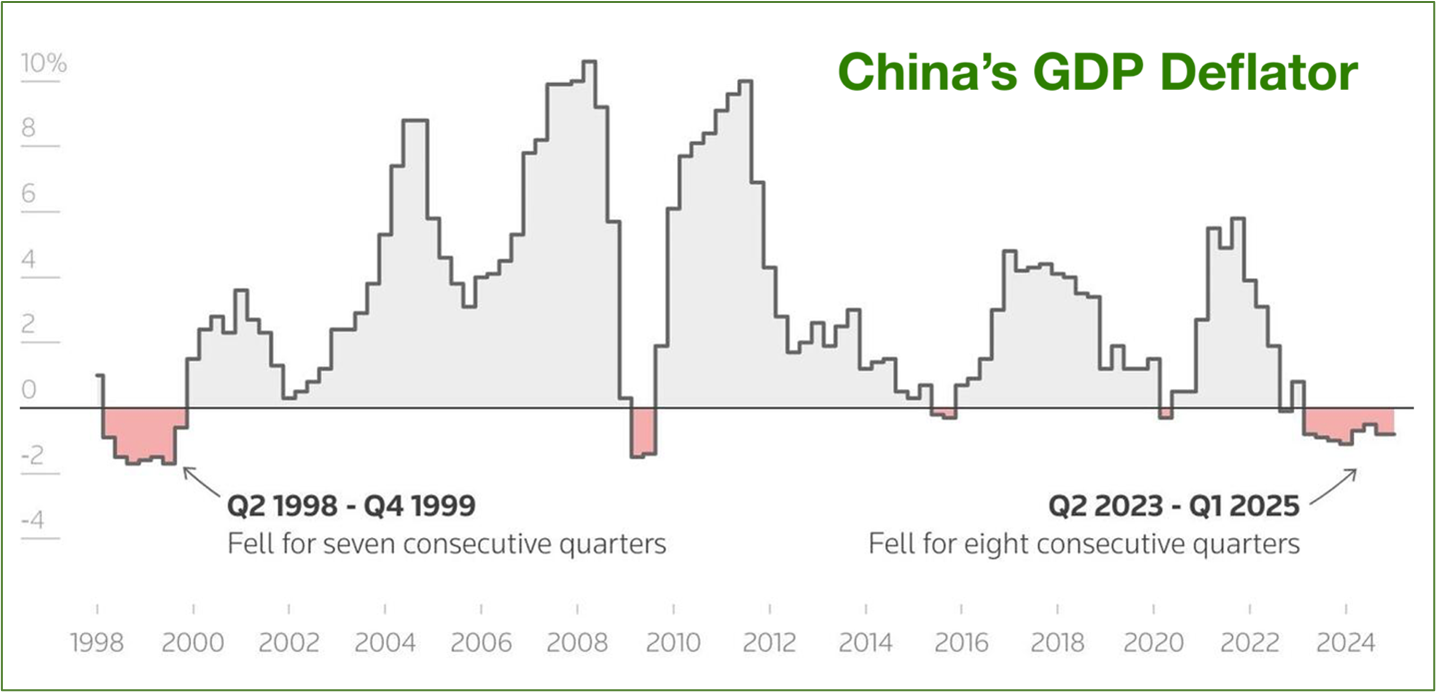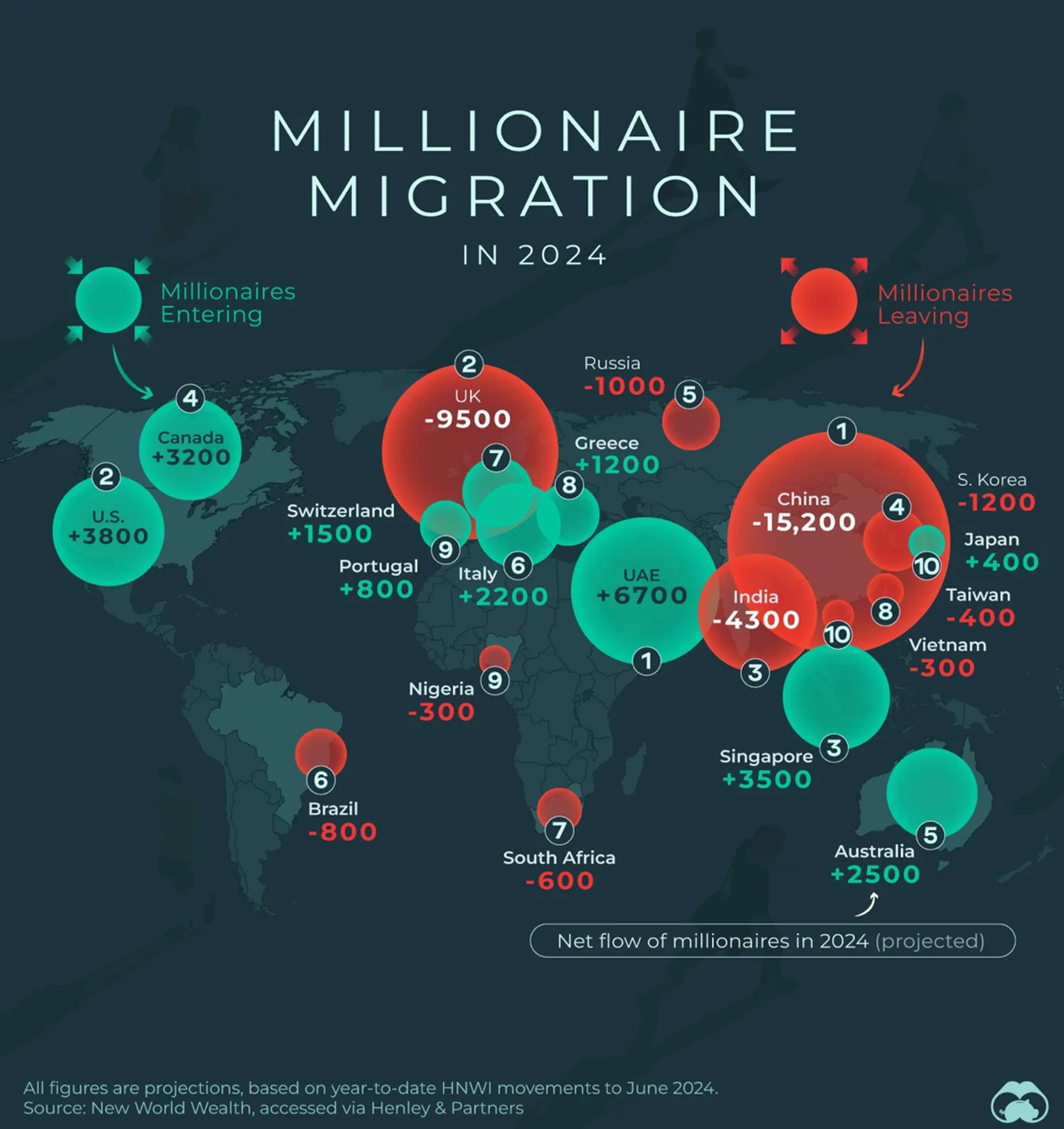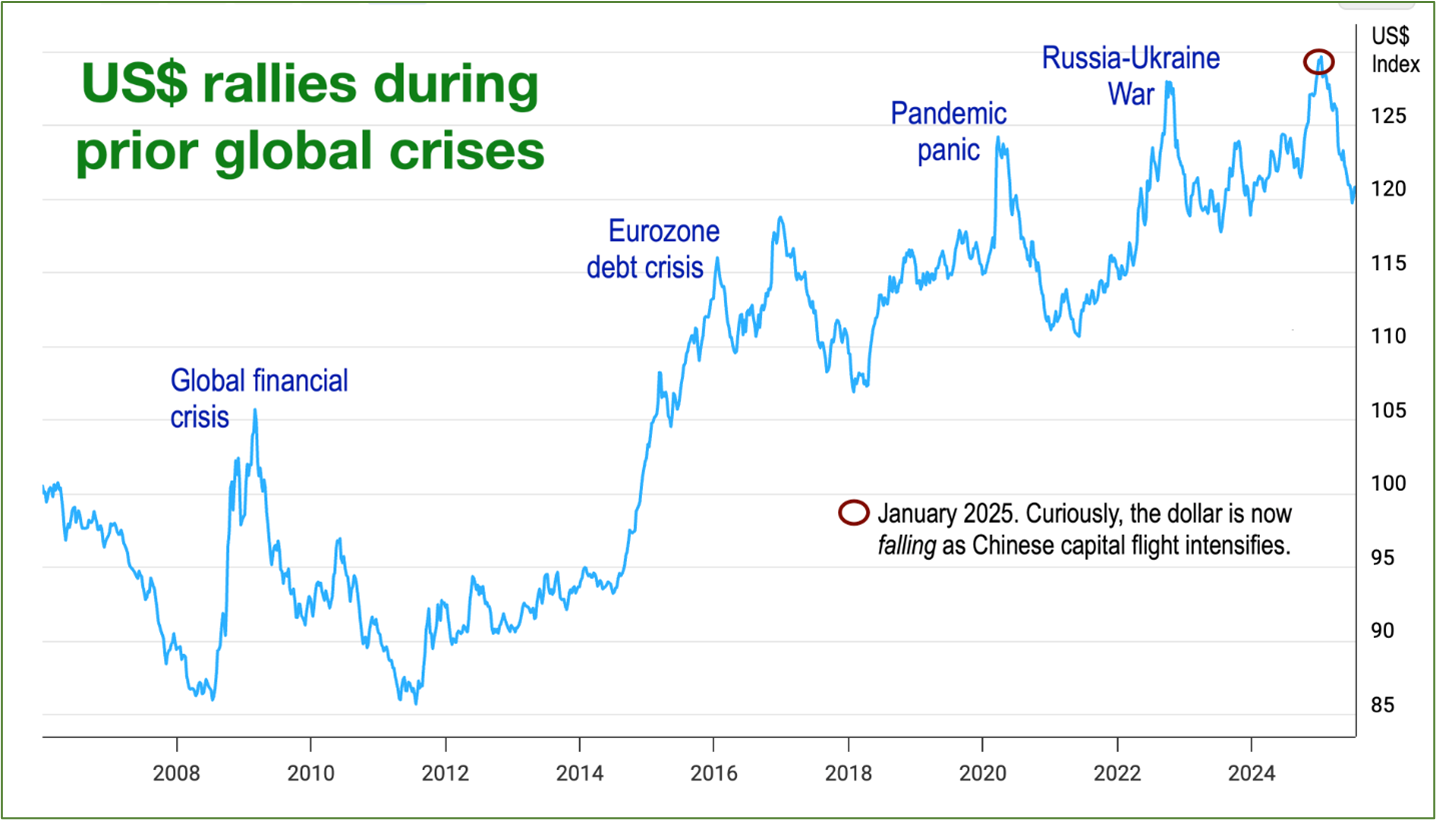How Bitcoin Quietly Benefits from China’s Economic Crisis
 |
| By Dawn Pennington |
Paramount leader Deng Xiaoping opened China’s economy to market forces in the 1970s and ’80s.
This is how China became the world’s second-biggest economy in virtually a single generation.
That economy grew at near-double-digit rates for 20 years.
Along the way, some 800 million of its people moved up into a middle-class standard of living.
Never in the history of human achievement have so many people’s lives improved so much in so short a time.
Those days are now long gone.
China got hammered hard by the 2008 global financial crisis. And even harder by COVID.
Nobody knows for sure how many died. China’s Department of Civil Affairs stopped reporting funeral and cremation statistics.
Researchers study statistics that still are reported.
And those paint a grim picture.
Of the 1.4 billion population China once claimed, maybe 600 million to 800 million are actually alive today.
This is just one indicator that China’s once-high-flying economy appears to be circling a deflationary black hole.
Here’s another.
GDP deflator is the broadest measure of the prices of Chinese goods and services. It has now fallen for two consecutive years.
That’s the longest deflationary streak since official records began in 1993.
Then there’s China’s property market, which accounts for 70% of household wealth.
And it looks like it’s crashing on a scale that dwarfs America’s 2008 mortgage crisis.
Housing prices are down 30% and still falling. Average Chinese have already lost an estimated $18 trillion — with no end in sight.
This frightens a lot of folks.
As a result, more and more people who still have savings are scrambling to get their money safely outside the country.
Before the roof caves in.
Here’s some anecdotal evidence.
Several months ago, one of Shanghai’s richest families (worth an estimated $300 billion) executed an elaborate plan to secretly decamp and emigrate to Canada.
They did so without revealing their intentions to any friends or business associates.
Word only got out when smartphone videos — made by their moving company to document their work — leaked.
Those videos then exploded across Chinese social media.
That’s one of the higher-profile examples. But it’s part of a clear trend.
While the UAE and the U.S. are welcoming more millionaires …
China is hemorrhaging more millionaires than any other nation on earth.
The green circles (above) indicate capital inflows. The red circles, capital outflows.
And the world’s biggest red circle is China.
In times of crisis, nervous capital doesn’t chase yield. It craves safety.
In recent decades, this meant most of it flowed into U.S. dollars.
For example,
- The 2008 global Financial Crisis,
- The Eurozone debt crisis,
- The COVID pandemic panic and
- The Russia-Ukraine war …
all coincided with notable U.S. dollar rallies.
This happened as worried investors sought the perceived stability of the U.S. financial system.
However, the greenback has basically been going down in 2025 — even with today’s move to a five-week high in front of some imminent U.S. economic reports — just as Chinese capital flight intensifies.
So where is Chinese money going?
That’s not a question that’s easy to answer.
As far as Beijing is concerned, transferring more than $50,000 (per year) abroad without hard-to-get government approval qualifies as money laundering.
And that activity gets criminalized accordingly.
Because of this, many capital transfers are forced underground. This makes them almost impossible to identify and track.
One exit strategy is overpaying for imports.
Another is sending art or antiques to an overseas auction house, and never bringing sale proceeds back to China.
A third option is the one I want to bring to your attention.
Bitcoin (BTC, “A-”) is well-known in China.
Beijing outlawed crypto trading in 2021.
But it is not illegal for citizens to have crypto wallets.
Or to own Bitcoin.
This likely makes it a favorite of folks keen to get their money quietly out of the country.
And while the U.S. dollar has been mostly going down in 2025, Bitcoin has set more than a half-dozen new all-time highs.
Chinese capital is likely one of the most important hidden reasons why.
Investment Implications
By the way, Chinese money pouring into Bitcoin is not new. It happened in 2015 and 2019.
Back then, what frightened domestic investors was devaluation of the yuan. So, these buying binges were relatively short-lived.
By contrast, what’s causing fear today is a radical, wrenching — and possibly involuntary — restructuring of the world’s second-biggest economy.
Nobody knows how it’s going to turn out. Or how long it’s going to take.
This practically guarantees massive ongoing uncertainty.
Which means Chinese buying will likely keep a fire burning under Bitcoin for quite a long time.
Investors would be wise to pay attention. And act accordingly.
To your health and wealth,
Dawn Pennington
Editorial Director
P.S. Bitcoin isn’t the only “off-the-beaten-path” opportunity investors should be aware of.
My colleague Chris Graebe is a startup investing specialist. And he’s found a little-known, pre-IPO company that’s set to disrupt one of the most lucrative industries on Earth.
Successful deals in this sector have offered returns as high as 900% … 19,942% … 53,423% and more.
Now those are returns that can rival what early crypto investors saw!
To learn more, I suggest you watch Chris’ Private Investment Summit now.
It goes offline tomorrow, so this could be your last chance.




